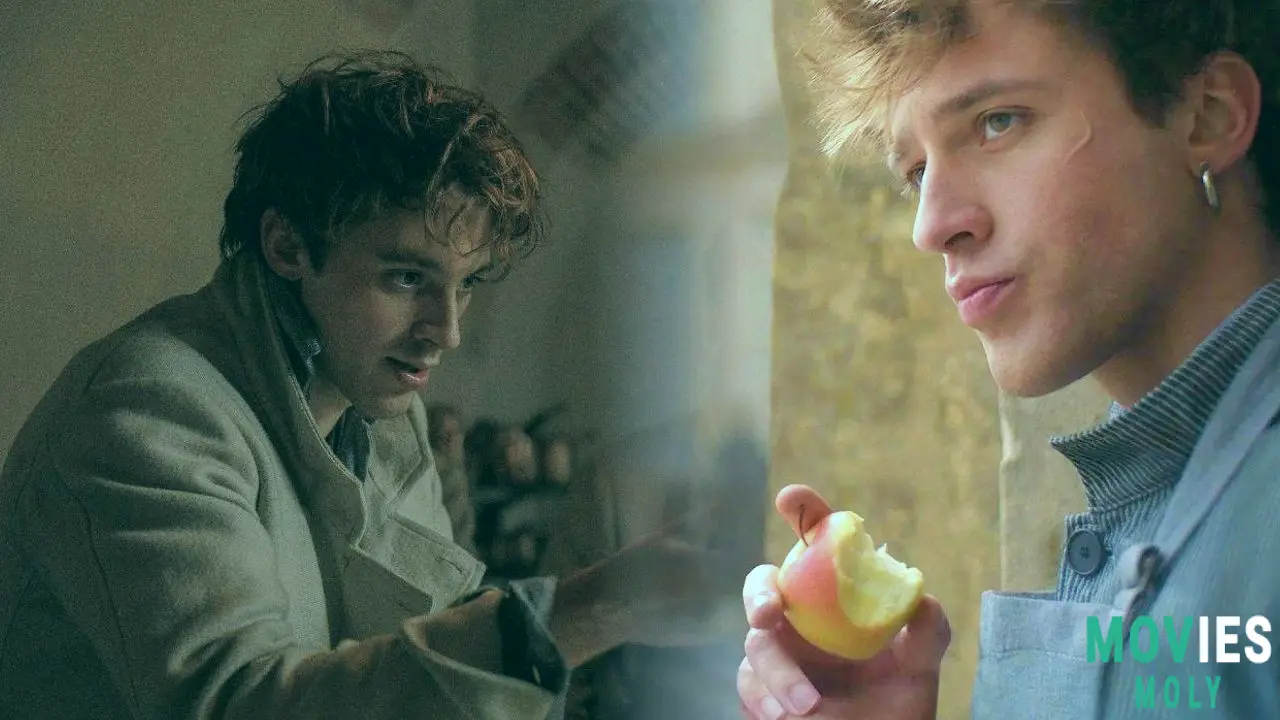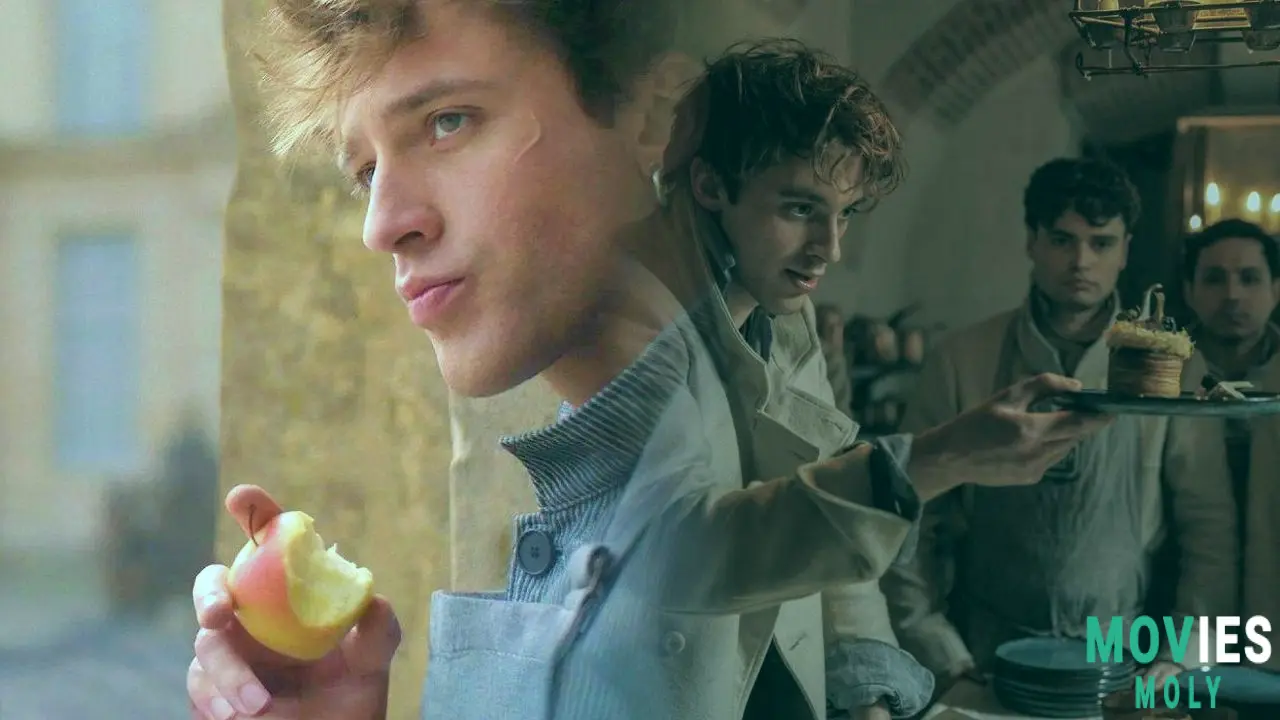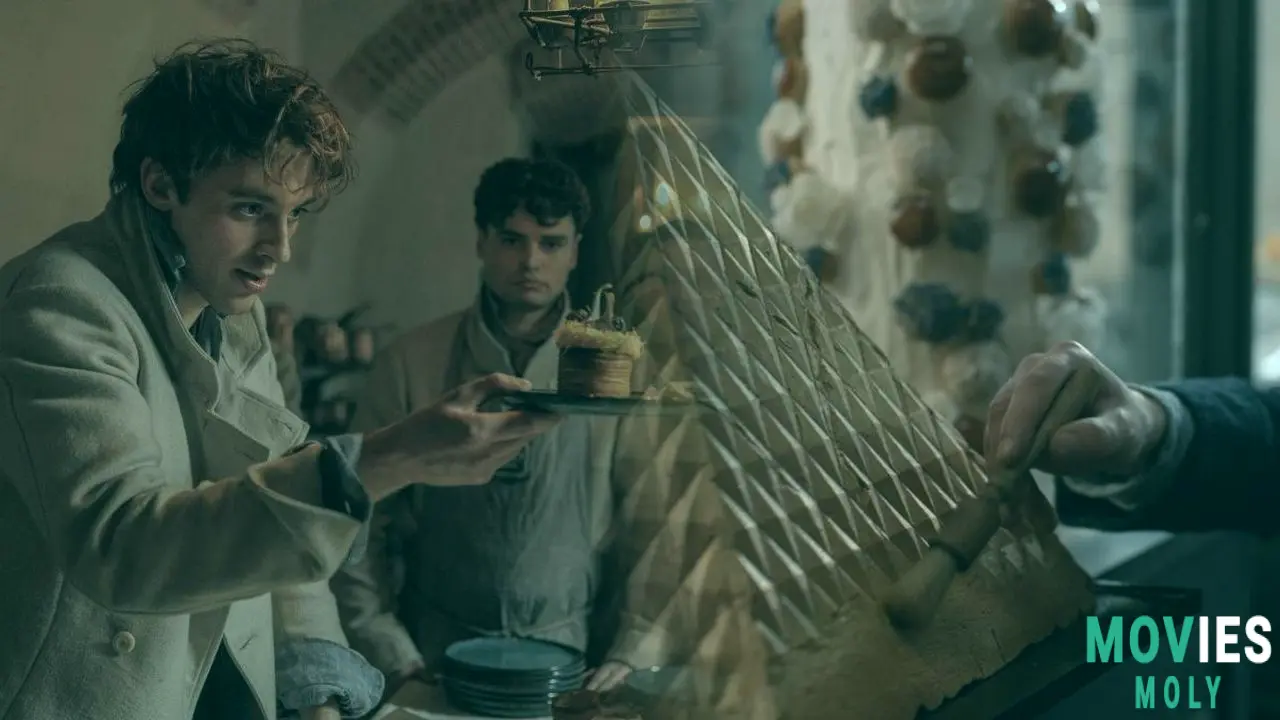Apple TV+’s Carême isn’t just a show about food—it’s a full-course sensory overload served with a wink, a whisk, and a weaponized wink. French-language series Carême takes the life of Antonin (Marie-Antoine) Carême, the world’s first celebrity chef, and spins it into a flamboyant feast of historical drama, erotic espionage, and gastronomic genius. If you’ve ever imagined James Bond crashing a dinner party with a soufflé instead of a silenced pistol, this is your flavor profile.
How Carême Turns a Culinary Legend Into a Sexy Political ThrillerBased on Ian Kelly’s Cooking for Kings and co-created by Kelly himself, Carême blends fact and fancy in a way that would make its titular character proud. Antonin Carême (Benjamin Voisin) is portrayed not only as a culinary innovator—credited with inventing the chef’s toque, the vol-au-vent, and the very concept of haute cuisine—but as a cunning improviser who uses his kitchen access to infiltrate the corridors of power. And he doesn’t just cook for the elite; he spies on them, seduces them, and manipulates them, one plated masterpiece at a time.
The series wastes no time in establishing its tone. What begins as a delicate comparison between two types of whipped cream swiftly doubles as a sensual foreplay scene. In Carême, flavor and flirtation are inseparable, and every bite carries a subtext. This isn’t just food porn—it’s food with a plot.
Food, Sex, and Espionage: A Triad as Old as Time (or at Least as Old as Carême)

One of the most deliciously clever elements of Carême is its use of culinary artistry as a metaphor for political and sexual power. Antonin’s creations aren’t merely edible—they’re emotional weapons. Whether he’s drugging Joséphine Bonaparte to steal a secret from her husband’s desk or igniting a dessert pyramid to salvage a diplomatic relationship, his kitchen is a theater of tactical performance. Every éclair is a ploy, every sauce a symbol.
And then there’s the sex. Antonin is as flamboyant in his love life as he is in his pastry. His encounters with Henriette (Lyna Khoudri), Joséphine, and Agathe (Alice Da Luz) are as varied and textured as his dishes. These women aren’t just accessories to his ambition—they’re players in their own right, adding layers of power, desire, and commentary to the mix. Even when the show flirts with cliché, it rarely lets these characters become mere soufflés in Antonin’s recipe for success.
Behind the Lust and Layers, a Commentary on Creation, Control, and Identity

At its core, Carême is about creation—whether in the form of food, identity, or influence. Antonin is a man obsessed with precision and presentation, turning everything he touches into art. His passion for pastry is matched only by his hunger for control. Yet, like a perfect meringue, his life is full of air and tension, constantly on the verge of collapse.
The show brilliantly captures this duality. The kitchens burn with creative energy, while the political games simmer beneath the surface. Antonin’s relationship with Talleyrand (Jérémie Renier) is especially gripping—a dance of mutual exploitation and subtle subversion. And looming over them all is Fouché (Micha Lescot), the Minister of Police whose relentless pursuit turns every move into a chess game with knives disguised as forks.
Carême’s Visuals and Vibes Are a Gastronomic Blockbuster of Their Own

Director Martin Bourboulon, with help from Laïla Marrakchi and Matias Boucard, crafts a series that looks and feels like a decadent dessert after a day at Versailles. The production design is impeccable—gleaming copper pots, pristine pastry stations, and opulent ballrooms bathed in candlelight. Every frame is composed with the care of a maître d'art, inviting viewers to savor not just the story, but the atmosphere.
The sequences where Antonin tackles culinary challenges are especially satisfying. Think kitchen montages that blend the intensity of The Bear with the elegance of Call My Agent!. These moments give us insight into Antonin’s soul—a man who communicates through cream, who strategizes with sugar, and who loves with layers.
When Historical Accuracy Takes a Backseat, Style and Substance Fill the Plate

Carême is by no means a strict history lesson. It freely bends facts in service of flavor, and that’s part of its charm. Sure, the idea of a pastry chef effortlessly infiltrating political circles through seduction and soufflés might stretch credibility. But so does the notion of a chef doubling as a spy—and yet, here we are, eagerly watching every deliciously implausible twist.
Like a comic book that swaps capes for aprons, Carême embraces its genre-mixing identity. It’s part biopic, part spy thriller, part erotica, and part culinary showcase. It’s a mashup that doesn’t always stick the landing, but never fails to entertain. And honestly, when your protagonist invents the croquembouche while outwitting a future emperor, you’re allowed a little creative license.
Why Carême Is the Culinary-Spy-Drama We Didn’t Know We Needed
In a TV landscape hungry for originality, Carême serves up something rare: a show that’s as smart as it is sexy, as flavorful as it is flamboyant. It’s a celebration of creativity, a critique of power, and a love letter to the idea that everything—politics, passion, identity—can be crafted with care. Antonin Carême may have invented modern gastronomy, but Apple TV+ has reimagined him as a cultural hero of a different kind.
Whether you’re into historical dramas, culinary arts, or just really cool character work, Carême is a series that sticks to your ribs. It’s a bit indulgent, a bit over-the-top, and utterly irresistible. In the world of television, that’s the perfect recipe.
Carême’s first two episodes premiere April 30 on Apple TV+, with new episodes every Wednesday through mid-June.






